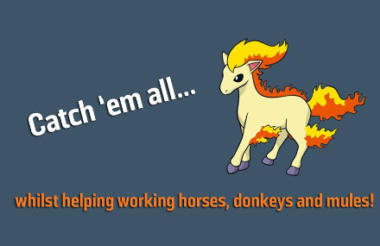Macmillan Cancer Support, Cancer Research UK and Brooke are among the charities to encourage fundraising using the Pokemon Go app, which launched in the UK yesterday.
Pokemon Go is a mobile game which uses a phone’s location to identify nearby Pokemon that users can catch, train and battle. It provides an augmented reality experience, using the phone’s camera to show the creatures alongside real life landmarks.
It is the latest in the Pokemon franchise, which began as a game for the Gameboy, a handheld gaming console popular in the 1990s and early 2000s. This is the first time that Nintendo has specifically developed something for another platform.
Today’s launch coincided with a Macmillan fundraising day in London and it shared a map of the “best places in London to find Pokemon” – which happen to coincide with locations for the charity’s bucket collectors.
Brooke, a charity that supports working horses and donkeys, used the launch to encourage people to raise money by organising a walking challenges.
“Are you on a quest to become the world's greatest Pokémon trainer?” The Brooke’s website said. “Well whilst you’re trying to catch ‘em all why not help the real life Ponytas and Rapidashes by organising a sponsored Pokémon Go walk in aid of Brooke!”
Meanwhile CRUK used the launch to encourage people to sign up for its Walk All Over Cancer challenge.
Oxfam also used social media to tell followers that they could find Pokemon at Oxfam shops.
Elsewhere the Science Museum and Victoria and Albert Museum shared screenshots of Pokemon at their premises.
The game had already been available the US, Australia and Germany. An animal shelter in Indiana used the launch of the app to encourage people to volunteer to walk its animals, while they go out looking for Pokemon.
NSPCC concerned about the app
Children’s charity NSPCC had urged the launch to be delayed in the UK citing concerns about children’s safety.
It has now produced a guide for parents and carers.









